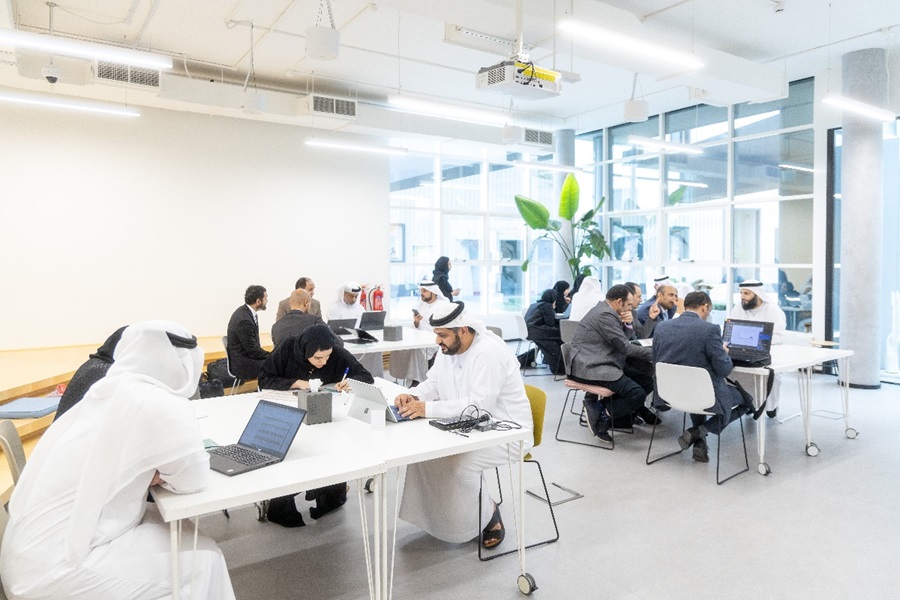
Ajman Department of Finance Completes 1,115 Training Hours Aligning with Ajman Vision 2030 and UAE Centennial 2071
Reflecting its dedication to enhancing and expanding human capital in the emirate, the Department of Finance in Ajman has made significant strides in equipping individuals with essential skills for future economic success. In alignment with Ajman Vision 2030 and the UAE Centennial 2071, the department completed 1,115 training hours across various developmental fields in the first half of 2024. These training initiatives targeted both department employees and university and secondary education students within the emirate.
As part of its strategic plan for Future Skills and Talent Development, the department implemented 15 training programmes during the first half of this year. These programmes covered a range of areas, including specialised financial courses, financial diplomas, management and leadership, excellence and creativity, human resources, executive secretarial skills, public relations, and customer service.
The Department of Finance in Ajman is committed to developing UAE’s national talent pool. His Excellency Marwan Al Ali, Director of the Department, stated in this regard: “We believe that the effectiveness of our human resources is central to fostering creativity and excellence and is fundamental to achieving inclusive and sustainable development within society. Given the rapidly evolving nature of work globally, we are dedicated to investing in our young talent through comprehensive training programmes designed to equip them with the skills required for the future. Our aim is to promote development, innovation, and continuous learning, thereby building human capital that can shape the future and meet the aspirations of the Emirate of Ajman and the UAE. This approach will enhance the quality of life within our society and bolster the country’s global competitiveness.”
Walid Abdullah Al-Zarooni, Support Services Manager at the Department, affirmed that the Department’s comprehensive annual training plans are meticulously designed to include development programmes, aligned with best practices and international standards. These programmes are tailored to meet the diverse financial training needs of the department’s employees, as well as university and secondary school students in the Emirate of Ajman. The objective is to help them achieve the highest standards of quality, excellence, and professionalism, and to enhance their adaptability to future trends and changes. This approach also intends to reduce career turnover and improve talent retention.
The department has ensured that its training plans encompass qualification programmes for future university and secondary school graduates, equipping them with essential skills for the future job market and nurturing their ability to contribute creatively and effectively to development.
He further highlighted that the implementation of talent development plans, tailored to future training needs, achieved 100% completion during the first half of the year. Additionally, the percentage of trainee staff in supervisory roles reached 85%, while those in specialised and executive categories was 63%.
Regarding the number of training programmes delivered, Al-Zarooni detailed that the service offered 7 development programmes focused on management and leadership. Additionally, 8 training programmes were conducted beyond the approved training plans. He noted that the vocational training for university students and secondary school students reached a total of 8 trainees. Furthermore, 3 individuals benefited from the "Khutwati" programme - a summer training initiative launched by the department last year. This programme provides workshops for UAE nationals who are high school graduates or university students, covering disciplines such as financial and accounting, human resources, public relations, graphic design, and marketing.



























